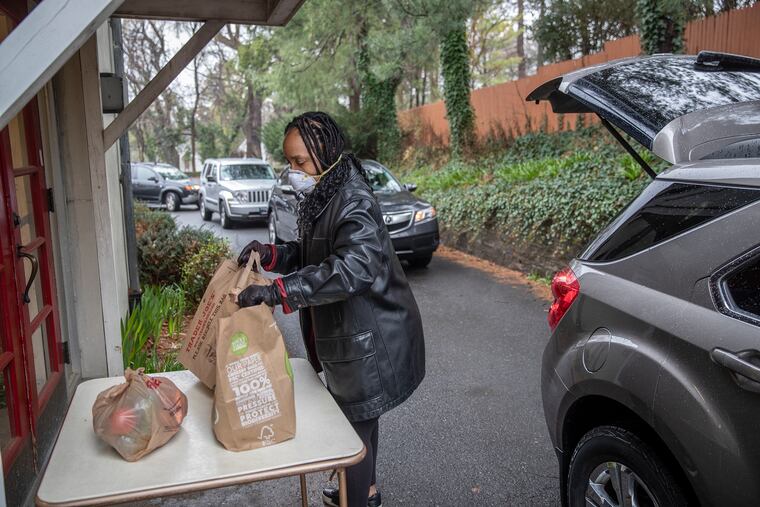With coronavirus crisis, the mission-driven work of Philly’s many nonprofits is needed more than ever | Opinion
Let’s follow the lead of our philanthropic leaders and not let the call for social distancing cause us to wash our hands of the needs of our charitable sector.

With the advent of COVID-19, all of us are being challenged to innovate new ways of working. We need to consider how we can be of service to one another, balancing the need to keep the paychecks coming and our staff safe and healthy. We in the nonprofit sector are in the same boat. However, the approach we take extends beyond the bottom-line. It is a question of mission.
It is during such times that our sector is energized and eager to do more, to serve better, and to be a reliable resource to those in need. As a provider of college and career advising services to nearly 4,000 high school students, at the Philadelphia Education Fund, staff are asking, what can we do for students whose world has been turned upside by sudden campus closures? For some students, it’s not as simple as a call home. An early college closure may mean housing and food insecurity, the loss of employment near campus, and new struggles to finish coursework that moved online when one has limited access to computers or high-speed internet.
We are not alone. Every nonprofit is asking themselves: What more can we do to help? Unfortunately, as we ask this question, COVID-19 puts at great risk our actual ability to help.
At a recent press conference, Mayor Jim Kenney sounded the alarm. Joined by leadership from the Philadelphia Foundation and the United Way, he announced the formation of a $6.5 million fund to support area nonprofits serving our most vulnerable. And for the sector, it is welcome news. Without it, under the weight of this global pandemic, our social safety net risks fraying — irreparably.
Despite being the fourth-largest employment sector in the region, the nonprofit revenue model remains a mystery to most outside the industry. Our funding looks different, often laden with restrictions, matching requirements, and insufficient to deliver a service in full.
In a 2017 report, entitled “The Financial Health of Philadelphia-Area Nonprofits,” authors from Oliver Wyman, SeaChange Capital Partners, and GuideStar issued a warning. After analyzing more than 3,000 Philadelphia organizations, they concluded that a 5% loss in annual revenue could force 20% of the region’s nonprofits to close. That’s 600 nonprofits — providing meals and companionship, educational and career services, housing the most vulnerable, supporting legal services, or offering financial counseling and assistance during a crisis.
The report revealed that one in four local nonprofits operate at breakeven or less. And 20% will have no way forward once their three weeks, or less, in available cash reserves are depleted. This may be shocking to others but is normal for nonprofits. It is the reason we host galas, send appeal letters, and place neon “please donate” buttons on our websites. Our sector depends on the beneficence of others to close the gap. And now, as we cancel those very events that generate the resources that enable us to support those we serve, the sector needs your support more than ever.
You can donate to the PHL COVID-19 fund. Or you could sponsor a nonprofit gala that was canceled. Or answer that fund-raising appeal letter. Let’s follow the lead of our philanthropic leaders and not let the call for social distancing cause us to wash our hands of the needs of our charitable sector.
Farah Jimenez, over the past 20 years, has led some of the region’s most important nonprofits. She is currently the president and CEO of the Philadelphia Education Fund, a college, career, and scholarship program serving 4,000 Philadelphia high school students. @PhilaEdFund